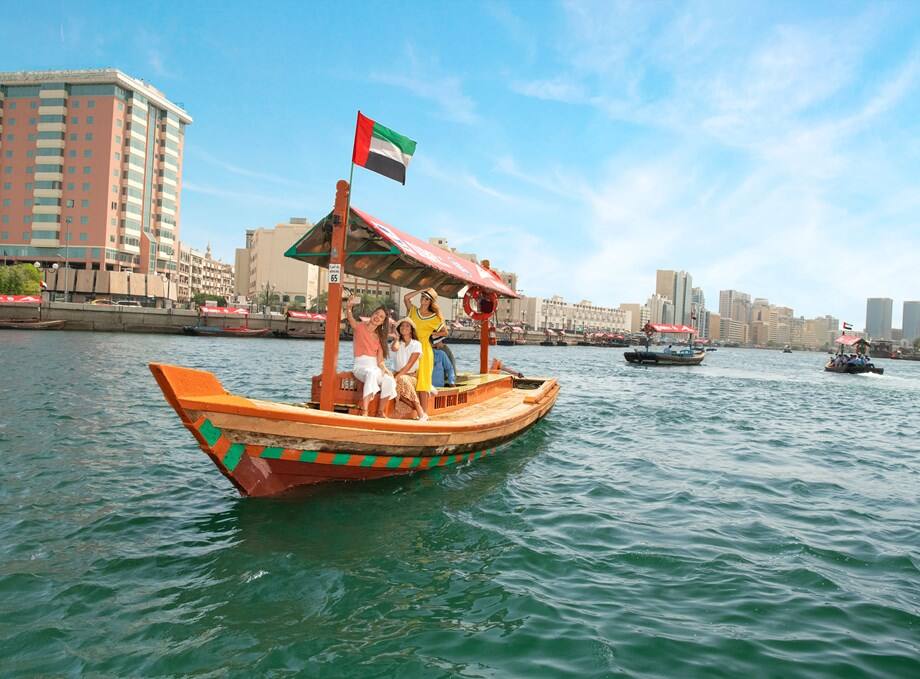Spots to explore the heritage and culture of Dubai
Dubai, often celebrated for its modernity and cosmopolitan allure, also boasts a rich cultural heritage deeply rooted in its Bedouin past and maritime traditions. Exploring the heritage and culture of Dubai unveils a fascinating tapestry of historical sites, museums, traditional markets (souks), and immersive experiences that offer a glimpse into the city’s transformation from a small fishing village to a global metropolis. Here’s a detailed guide to the spots where you can delve into the heritage and culture of Dubai:
Historical Sites and Museums
1. Al Fahidi Historical Neighbourhood (Old Dubai)
Located along the Dubai Creek, the Al Fahidi Historical Neighbourhood, also known as Al Bastakiya, is one of the oldest residential areas in Dubai. It dates back to the late 19th century and provides a glimpse into traditional Emirati architecture and urban planning.
-
Dubai Museum: Housed in the Al Fahidi Fort, the Dubai Museum showcases exhibits that illustrate the history and culture of Dubai, from its humble beginnings as a fishing village to its rapid development.
-
Art Galleries and Cafes: Wander through narrow alleyways lined with wind-tower houses (barajeel) that have been converted into art galleries, cafes, and cultural centers, offering insights into contemporary Emirati art and culture.
2. Sheikh Saeed Al Maktoum House
Adjacent to the Dubai Creek, Sheikh Saeed Al Maktoum House is a historic residence that once belonged to Dubai’s ruling family. It now serves as a museum showcasing artifacts, photographs, and documents that trace the history of the ruling family and the development of Dubai.
- Architecture: The house itself is a fine example of traditional Arabian architecture, featuring courtyards, wind towers, and intricate wooden lattice work (mashrabiya).
3. Dubai Heritage Village
Located in the Al Shindagha area near the Dubai Creek, the Dubai Heritage Village is a reconstructed traditional village that offers a glimpse into Bedouin life before the city’s modernization. Visitors can explore traditional homes, watch artisans at work, and attend cultural performances.
- Cultural Demonstrations: Experience demonstrations of traditional crafts such as pottery making, weaving, and pearl diving, which were integral to Dubai’s economy before the discovery of oil.
Traditional Markets (Souks)
1. Spice Souk and Gold Souk
Situated in the bustling Deira area near the Dubai Creek, the Spice Souk and Gold Souk are iconic markets where you can experience Dubai’s trading heritage.
-
Spice Souk: Wander through narrow alleyways filled with the aroma of spices, herbs, and traditional perfumes (attars), while vendors entice you with their colorful displays.
-
Gold Souk: Discover a dazzling array of gold jewelry, from intricate Arabic designs to modern styles, in what is one of the largest gold markets in the world.
2. Textile Souk
Located in the historic Bur Dubai area along the Dubai Creek, the Textile Souk is a vibrant marketplace where you can browse through a wide selection of fabrics, textiles, and traditional Emirati garments such as the kandura (men’s robe) and abaya (women’s cloak).
- Bargaining: Engage in the traditional art of bargaining with friendly vendors who are happy to share stories about the origins of their wares.
Cultural Experiences
1. Alserkal Avenue
A hub for contemporary art and culture, Alserkal Avenue in Al Quoz is home to art galleries, studios, cafes, and creative spaces housed in refurbished warehouses. It hosts art exhibitions, cultural events, film screenings, and workshops that highlight Dubai’s thriving art scene and support local artists.
2. Dubai Opera
Located in Downtown Dubai, the Dubai Opera is a modern architectural marvel that hosts a diverse range of performances including opera, ballet, theater, concerts, and cultural events. It provides a platform for both international and local artists, showcasing Dubai’s growing cultural landscape.
Traditional Food and Cuisine
1. Emirati Cuisine
Sample traditional Emirati dishes such as machboos (spiced rice with meat), harees (wheat and meat porridge), and luqaimat (sweet dumplings) at local restaurants or during cultural tours that offer culinary experiences.
Conclusion: Dubai Visa
Before planning your visit to explore the heritage and culture of Dubai, it’s essential to consider the visa requirements:
-
Visa on Arrival: Citizens of several countries are eligible for a visa on arrival at Dubai International Airport, valid for 30 days. This includes citizens of the USA, UK, EU countries, Australia, Japan, and many others.
-
Advance Visa: For citizens of countries not eligible for visa on arrival, it’s necessary to apply for a visa in advance through the UAE embassy or online via the official UAE government portal.
-
Types of Visas: Dubai offers various types of visas depending on the purpose of your visit, including tourist visas, transit visas, and special event visas.
-
Visa Extensions: If you wish to extend your stay beyond the initial visa period, it’s possible to apply for an extension through the General Directorate of Residency and Foreigners Affairs (GDRFA).
Exploring the heritage and culture of Dubai offers a unique perspective on the city’s evolution from a humble fishing village to a global hub of commerce and culture. Whether you’re strolling through historic neighborhoods, bargaining in traditional souks, or enjoying cultural performances, Dubai’s cultural treasures are sure to leave a lasting impression.






